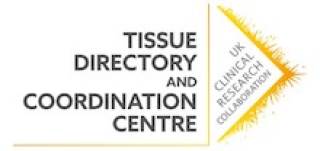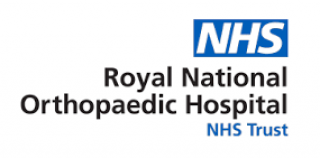UCL / UCLH Biobank for Studying Health and Disease
Fundamental to the vision of the UCL Cancer Institute as a world class cancer research centre is the availability of a large quantity of high quality biological samples for research purposes. The UCL / UCLH Biobank for Studying Health and Disease is fully licensed by the Human Tissue Authority and provides access to normal and diseased human tissue samples which are surplus to diagnostic requirements. These samples comprise existing archived clinical pathology collections, in addition to collections which are specifically biobanked from patients who have consented to contribute to the Biobank.
The UCL / UCLH Biobank for Studying Health and Disease has:
- An established model for sample collection, storage and distribution
- Excellent clinical engagement across all cancer disease types
- A robust governance framework for tissue and data
- A proven track record of providing quality samples
- About the Biobank
The UCL / UCLH Biobank for Studying Health and Disease is licensed by the Human Tissue Authority (licence number: 12055, Designated Individual: Professor Manuel Rodriguez-Justo) and has been ethically approved as a research tissue bank by Leeds East Research Ethics Committee (Ref: 20/YH/0088).
The Biobank holds what is known as generic ethics approval. This confers approval to anyone using samples from the Biobank, so researchers do not need to obtain their own ethical approval for relevant projects using Biobank samples. This centralised management of ethics and regulatory requirements is of great advantage to researchers.
- Location
The UCL / UCLH Biobank for Studying Health and Disease is based at the UCL Cancer Institute in the Rockefeller and Paul O'Gorman buildings and has satellite HTA licensed premises at Charles Bell House, UCLH, and the Royal National Orthopaedic Hospital (RNOH) Stanmore.
- Remit and Governance
The remit of the Biobank is to facilitate research in human health and disease, primarily in the UCL Cancer Institute and the satellite centres, but where possible resources are also made available to external parties.
The Biobank is governed by the Biobank Ethical Review Committee (B-ERC) which represents a range of stakeholders working together to maximise the potential of the samples stored or registered with the Biobank. The B-ERC ensures that there is good governance, appropriate links to the relevant communities, and that progress, output and the development of the Biobank is regularly monitored.
The B-ERC reviews requests for new sample collections, and for use of existing samples and data for research, including from those that do not already have ethical approval, and ensures that they satisfy conditions laid down by the Health Research Authority (HRA) and the Human Tissue Authority (HTA).
The B-ERC reports to the Clinical Research Governance Committee (CRGC) and the UCL HTA Licence Designated Individual and Persons Designated Group and has clear terms of reference.
The Biobank is listed on the UKCRC Tissue Directory.

- Accessing the Biobank
Academic, non-commercial, and commercial researchers will be eligible to apply to use samples and/or data from the UCL / UCLH Biobank for Studying Health and Disease, if they present a sound scientific rationale for the proposed study and have a good research track record.
In order to apply to the Biobank, email our shared Mailbox or use the hyperlink to request an application pack.
- Funding
The UCL / UCLH Biobank for Studying Health and Disease is supported by core funding from the UCL Cancer Institute, Cancer Research UK City of London Centre, and the Royal National Orthopaedic Hospital NHS Trust.
The Biobank also accepts charitable donations from those who wish to support our valuable work. If you wish to make a donation, please use the "Make a Donation" button to the right of the page.


- Our Research
Information for Patients
It is important for patients to understand why the Biobank is needed and what will happen to their samples before any donations take place.
Below are some common questions and answers, which provide a better understanding of patient involvement.
- What is a Biobank?
A biobank is a repository of biological materials and associated information that are collected, processed and distributed for biomedical research purposes. The UCL/UCLH Biobank for Studying Health and Disease provides researchers with access to normal and diseased human tissue samples which are surplus to diagnostic requirements. These samples comprise existing archived clinical pathology collections, in addition to samples which are specifically collected from patients who have consented to contribute to the Biobank.
- Why do we need a Biobank?
In recent years a lot of progress has been made in understanding cancer and other diseases. However, more research needs to be done to help us understand the causes of disease and to discover new methods for diagnosis and treatment. It is very important that we have a large number of tissue, blood and other samples from people with specific diseases to allow this research to take place. It is also import for us to collect normal tissue from patients having surgery for other reasons so that comparisons can be made.
- What will happen to samples donated to the Biobank?
The Biobank will consider applications to use the samples from all scientists conducting research in areas covered by the remit of the UCL/UCLH Biobank for Studying Health and Disease. Ethical approval is required for any research carried out using human tissues. Research may be conducted in the UK or overseas by either public sector or commercial organisations.
- Can I donate to the UCL / UCLH Biobank for Studying Health and Disease?
The Biobank has permission to work closely with doctors and their teams to identify suitable cases for sample collection. If you are eligible to donate, your doctor/research nurse will come to talk to you and give you a more detailed Patient Information Sheet to read. If you then decide you would like to donate some samples to the Biobank, we will ask you to sign a form to give your consent. There is no obligation to donate to the Biobank and if you don’t want to be approached by the Biobank, please let your doctor know. This will not impact on your treatment in any way.
- What are the advantages and disadvantages of taking part?
There are potentially no advantages to you if you participate in research but it may help others in the future. You will not receive a financial reward. Donated tissue is considered to be a ‘gift’ to the Biobank.
- How will my data be used?
Information about the people who give samples will be securely stored at UCLH NHS Trust and no personal information will be released by the Biobank. All personal identifiers will be removed before the samples are released for research purposes and your tissues and data will be completely anonymous to anyone using it for research.
- Will the Biobank make a profit from the tissue collected?
The UCL / UCLH Biobank for Studying Health and Disease will not benefit financially from supplying samples to researchers, although we may make a charge to recover the costs to process and store the samples.
- Can I withdraw my consent to donate tissue and/or data to the Biobank?
Patients who have consented to donate their tissues and/or data to the biobank can withdraw this consent at any time. You do not need to give a reason to withdraw consent, and this will not impact on your treatment in any way. To withdraw consent, contact Biobank staff using the contact details provided in your patient information sheet. If consent is withdrawn, all tissues and/or clinical data held by researchers will be destroyed or returned to the NHS archives as applicable.
 Close
Close

